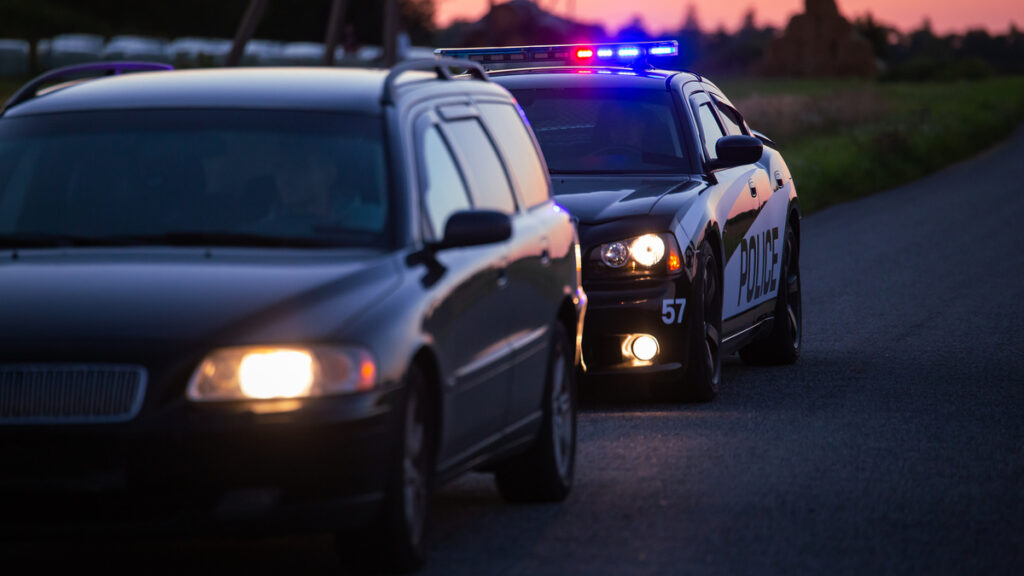

Police officers conducting DWI stops in Louisiana possess specific legal authority to search your vehicle under certain circumstances, but this power isn’t unlimited and depends heavily on the facts of your particular situation. Understanding when officers can legally search your car during a DWI investigation could mean the difference between having critical evidence suppressed or facing enhanced charges based on items discovered during the stop.
At the John D. & Eric G. Johnson Law Firm, we have successfully challenged illegal vehicle searches in DWI cases throughout north Louisiana, often resulting in suppressed evidence and dismissed charges. With over three decades of criminal defense experience, attorney Eric Johnson understands the constitutional protections that limit police search authority and how to identify violations that can strengthen your defense.
Fourth Amendment Protections During Traffic Stops
The Fourth Amendment protects you from unreasonable searches and seizures, including during DWI investigations. However, courts have established several exceptions that allow officers to search vehicles without a warrant under specific circumstances. These exceptions recognize the mobile nature of vehicles and the potential for evidence destruction, but they still require justification beyond an officer’s mere suspicion.
Louisiana follows federal constitutional standards for vehicle searches, meaning the same protections apply whether you’re charged in state or federal court. Officers cannot search your vehicle simply because they suspect DWI unless they have additional legal justification such as consent, probable cause, or officer safety concerns.
When Officers Can Search Without Your Permission
Several legal doctrines allow officers to search your vehicle during a DWI stop without obtaining your consent. The automobile exception permits searches when officers have probable cause to believe your vehicle contains evidence of criminal activity beyond the DWI itself. This might include observing drug paraphernalia, smelling marijuana, or seeing open containers of alcohol.
The search incident to arrest doctrine allows officers to search the passenger compartment of your vehicle if you’re arrested and could potentially access the vehicle to destroy evidence or obtain weapons. However, this exception has been significantly limited by recent Supreme Court decisions and generally requires specific circumstances to justify the search.
Plain view seizures occur when officers observe illegal items in open view during the lawful execution of their duties. If an officer sees drugs, weapons, or other contraband while investigating your DWI, they can seize those items without a warrant. The key requirement is that the officer must be lawfully present and the illegal nature of the items must be immediately apparent.
Officer safety searches, known as protective sweeps, allow limited searches for weapons when officers have reasonable suspicion that dangerous individuals or weapons might be present in the vehicle. These searches must be limited to areas where weapons could reasonably be concealed and cannot become general evidence-gathering expeditions.
Protecting Your Rights During Vehicle Searches
You have the right to refuse consent to search your vehicle, and exercising this right cannot be used as evidence of guilt. Clearly state “I do not consent to any searches” if officers request permission to search your car. Even if officers proceed with a search based on other legal justifications, your refusal to consent preserves important legal challenges for your defense attorney.
Remain calm and cooperative while asserting your rights. Arguing with officers or physically resisting will only create additional charges and will not prevent an illegal search. Document everything you can remember about the stop, including what the officer said, what they observed, and the sequence of events leading to any search.
Avoid volunteering information or making statements about items in your vehicle. Anything you say can provide officers with probable cause for a search or can be used against you in court. Exercise your right to remain silent and request an attorney immediately.
Common Search Violations in DWI Cases
Many vehicle searches during DWI stops exceed constitutional boundaries, providing grounds for suppressing evidence and potentially dismissing charges. Officers sometimes conduct searches based on insufficient probable cause, extending beyond the scope of legitimate safety concerns, or failing to properly document their justification for the search.
Pretextual searches occur when officers use the DWI investigation as an excuse to search for other evidence without proper legal justification. Courts scrutinize these searches carefully, particularly when the search seems disproportionate to the suspected DWI offense.
Consent obtained through coercion or deception may be invalid, making any resulting search illegal. Officers cannot threaten arrest, detention, or other consequences to obtain consent, and they must make clear that you have the right to refuse.
Contact Our DWI Defense Team
Challenging illegal vehicle searches requires thorough knowledge of constitutional law and extensive experience with DWI defense strategies. Our firm has successfully suppressed evidence obtained through illegal searches, often leading to reduced charges or complete case dismissals. Attorney Eric Johnson has tried DWI cases resulting in acquittals and has the courtroom experience necessary to expose police misconduct and constitutional violations.
Don’t let an illegal search compromise your defense—contact the John D. & Eric G. Johnson Law Firm today at (318) 377-1555 or through our contact form to protect your rights and build a strong defense against DWI charges.
